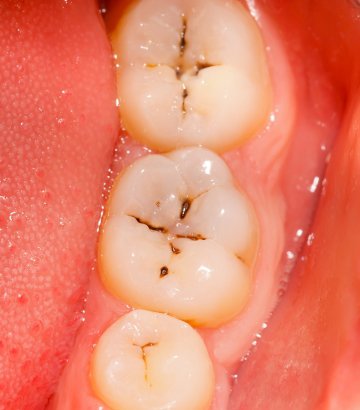A lot of oral health issues start off slowly and blossom into much more serious problems. Knowing about cavities helps you do what you can to avoid them so you can maintain healthy and beautiful teeth. Use this guide to learn more about cavities:
 A Cavity forms Slowly
A Cavity forms Slowly
A cavity is actually a small hole that develops in a tooth. They are often called decay or caries. Cavities start to develop when bacteria in the mouth mix with acid and start to wear down the enamel on the teeth. Without treatment, cavities will continue to grow and might lead to an infection or tooth loss.
A Cavity Has a Range of Symptoms
When a cavity first develops, you might not even notice anything strange in your mouth. Once it becomes bigger, though, it might cause a toothache or severe sensitivity . It might also cause pain when you eat. Sometimes you can see small holes or brown or black stains on the surface of your teeth. If you notice any of these symptoms, you should schedule an appointment with your dentist to see if you need a filling.
You Can Prevent a Cavity
Improving your oral hygiene routine can help you avoid issues with cavities. You should brush your teeth twice a day with a soft-bristle toothbrush to dislodge food and bacteria that might be stuck on your teeth. You should floss once a day to get rid of food that might be stuck between the tooth and the gums. Visit your dentist regularly to get deeper cleanings and checkups that help you avoid cavities.
University Associates in Dentistry is one of the best dental offices in Chicago. We help you with general, cosmetic, and restorative dentistry to ensure that you have the healthiest, most attractive teeth possible. From Invisalign to sleep apnea treatment, we help find the cause of your problems so we can bring you the proper treatment. For more information on our services, visit us online or call (888) 481-6598.



